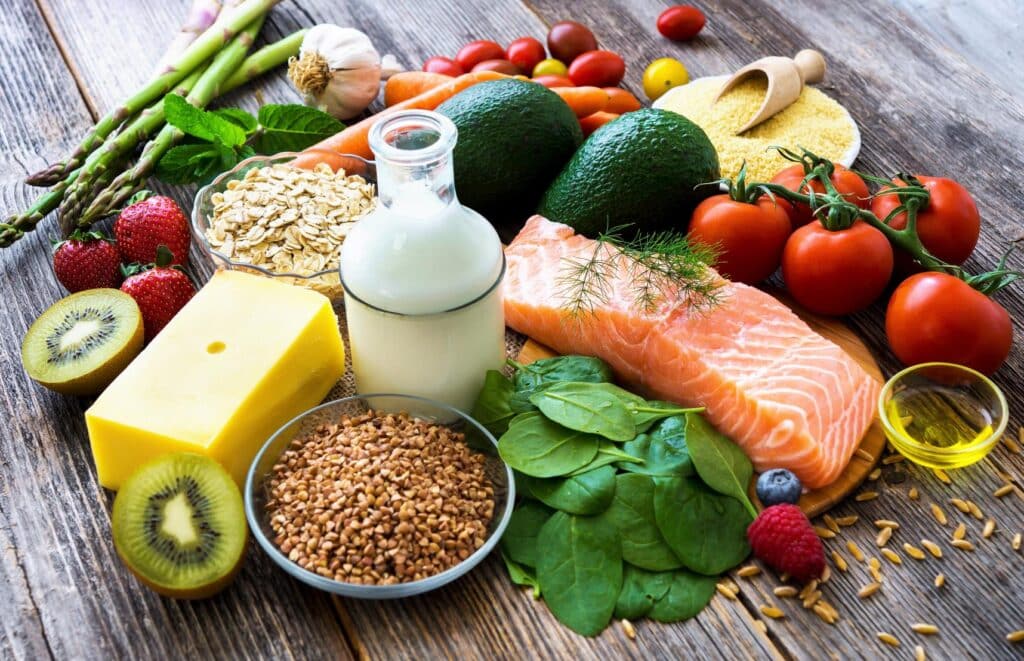Introduction
Which Is Better For Weight Loss Keto Or Carnivore: The debate between the ketogenic (keto) and carnivore diets in the realm of weight loss has gained significant attention in recent years. Both diets are considered low-carb approaches that emphasize different food sources, and they have passionate proponents on either side. In this exploration of keto versus carnivore for weight loss, we’ll delve into the fundamental principles and differences of these dietary approaches. The ketogenic diet is a well-known low-carb, high-fat diet that encourages the body to enter a state of ketosis, where it primarily burns fat for energy. This diet incorporates a wide variety of foods, including non-starchy vegetables, nuts, seeds, and healthy fats, alongside moderate protein intake.
On the other hand, the carnivore diet takes a more extreme approach, consisting almost exclusively of animal products. Advocates of this diet argue that it can lead to rapid weight loss and various health benefits by eliminating all plant-based foods and carbohydrates. As we navigate the intricacies of these two diets, we will assess their potential benefits and drawbacks for weight loss and overall health, ultimately aiding you in making an informed decision regarding which approach may be better suited to your goals and preferences. In the ongoing debate over the ketogenic (keto) and carnivore diets for weight loss, it’s essential to recognize that both approaches have unique characteristics and potential benefits.
The ketogenic diet, with its moderate protein intake and focus on healthy fats, is celebrated for its ability to induce ketosis and promote weight loss while allowing for a more varied menu. On the other hand, the carnivore diet, with its strict emphasis on animal-based foods and the complete exclusion of plant-based foods, represents a more extreme and limited dietary approach. In the subsequent discussion, we will delve deeper into the principles, advantages, and potential downsides of these two diets as they pertain to weight loss. We will explore the mechanisms through which they may facilitate weight reduction, consider their impact on overall health, and provide insights to help you make an informed choice regarding which dietary strategy aligns better with your weight loss goals and personal preferences.

Is keto more effective for weight loss?
A meta-analysis of 13 randomized controlled trials following overweight and obese participants for 1-2 years on either low-fat diets or very-low-carbohydrate ketogenic diets found that the ketogenic diet produced a small but significantly greater reduction in weight, triglycerides, and blood pressure, and a greater.
Ketogenic diets can help patients lose about 2 kg more than low-fat diets do in 1 year, but higher-quality studies show no difference. Weight loss peaks at about 5 months but is often not sustained. Individual weight change can vary from losing 30 kg to gaining 10 kg with any diet.
The effectiveness of the ketogenic (keto) diet for weight loss can vary from person to person, and it may not necessarily be more effective than other diets for everyone. Research studies have shown mixed results regarding the superiority of keto diets for weight loss compared to other dietary approaches.
Some studies have suggested that ketogenic diets can lead to initial weight loss, with patients losing more weight in the short term compared to low-fat diets. However, these studies also indicate that the weight loss tends to peak at around 5 months and may not always be sustained over the long term.
It’s crucial to understand that individual responses to diets can vary significantly. While some people may experience significant weight loss on a keto diet, others may not achieve the same results. Factors such as adherence to the diet, metabolic differences, and individual preferences can all influence the outcomes.
Why is fasting better than keto?
Intermittent fasting is not new on the diet scene and is popular among dieters and healthcare professionals because it: Allows for a range of healthy and enjoyable foods to be eaten (less restrictive than keto) Does not require calorie counting.
The variety of intermittent fasting plans, their flexibility, and their lack of prohibiting entire food groups make them more attractive and feasible than keto diets. However, more research and time are necessary to confirm the long-term safety of intermittent fasting diet plans.
Fasting and the ketogenic (keto) diet are distinct approaches to weight management and overall health, each with its own set of advantages and considerations. The statement that fasting may be more appealing or feasible than keto is subjective and can depend on individual preferences and goals.
Flexibility: Intermittent fasting (IF) plans offer flexibility in terms of when you can eat rather than focusing on specific food choices. This flexibility can be appealing to individuals who prefer not to restrict particular food groups or macronutrients.
Simplicity: Fasting can be simpler to implement, as it primarily involves time-restricted eating, where you limit your eating window during the day. Keto, on the other hand, requires careful tracking of macronutrient intake to achieve and maintain ketosis.
Variety of Approaches: There are various IF plans, such as the 16/8 method or the 5:2 method, which can cater to different lifestyles and preferences. Keto, while flexible in food choices, has more specific macronutrient requirements.
Research Continuity: Intermittent fasting has garnered substantial research attention, and many studies have explored its potential benefits. However, research on the long-term safety and effectiveness of both IF and keto is ongoing.
Why is keto the healthiest diet?
The keto diet depletes the body of its sugar reserves, causing it to break down fat for energy. It may help people lose weight, manage acne, and improve heart health, among other benefits.
The assertion that the ketogenic (keto) diet is the healthiest diet is a topic of ongoing debate and may not be universally accepted. While the keto diet has been associated with certain benefits, it also comes with potential drawbacks and risks.
Weight Loss: The primary goal of the keto diet is to induce a state of ketosis, in which the body uses fat for energy instead of carbohydrates. This can lead to weight loss, as the body burns stored fat for fuel.
Blood Sugar Control: Some individuals with type 2 diabetes or insulin resistance have reported improved blood sugar control on a keto diet due to reduced carbohydrate intake.
Seizure Management: The keto diet was initially developed as a treatment for epilepsy and has been effective in reducing the frequency and severity of seizures in some individuals with epilepsy.
Acne Management: Some people have reported improvements in acne when following a keto diet, possibly due to reduced carbohydrate intake and its impact on insulin levels.
Heart Health: For some individuals, the keto diet may lead to improvements in heart health markers, such as reduced triglycerides and increased HDL (good) cholesterol levels.However, it’s essential to acknowledge that the keto diet may not be suitable or safe for everyone.
Potential drawbacks and risks of the keto diet include:
Nutrient Deficiencies: The strict limitations on carbohydrates can lead to nutrient deficiencies, as many essential vitamins and minerals are primarily found in carbohydrate-rich foods.
Keto Flu: Some people experience flu-like symptoms when transitioning to a keto diet, including fatigue, headache, and nausea.
Gastrointestinal Issues: The high fat content of the diet can lead to digestive discomfort for some individuals.
Limited Food Choices: The keto diet restricts many food groups, which may make it challenging to maintain in the long term.
Potential for Ketoacidosis: In individuals with certain medical conditions, the keto diet can lead to a dangerous condition called ketoacidosis.
How fast do you lose weight on keto?
Weight loss from keto varies from person to person. Generally, if you maintain a daily caloric deficit of around 500-700 calories, you can expect noticeable weight loss after anywhere from 10 to 21 days. However, remember that weight loss is not linear and some may see results sooner.
The rate of weight loss on a ketogenic (keto) diet can vary significantly from person to person and depends on several factors, including individual metabolism, starting weight, adherence to the diet, and activity level. While some people may experience relatively rapid weight loss in the initial stages of keto, others may see slower progress.
Initial Water Weight Loss: In the first few days to weeks of starting a keto diet, many individuals experience a rapid drop in water weight due to reduced carbohydrate intake. This initial weight loss can be relatively quick and may vary from a few pounds to several pounds.
Fat Loss: The rate of fat loss on keto can vary widely. On average, a safe and sustainable rate of weight loss is about 0.5 to 2 pounds (0.2 to 0.9 kilograms) per week. Some individuals may lose weight more rapidly, especially in the first few weeks, while others may lose weight more gradually.
Plateaus and Variability: Weight loss is not always linear. It’s common to experience periods of slower progress or even temporary plateaus, which can be frustrating but are normal. Factors such as hormonal fluctuations and changes in water retention can influence the scale’s readings.
Individual Variation: Each person’s body is unique, and factors like age, genetics, and underlying medical conditions can influence how quickly weight is lost on a keto diet.
Adherence and Lifestyle: Consistency in following the keto diet and incorporating physical activity can impact weight loss. Sticking to the diet and maintaining a calorie deficit are key factors.
How successful is the carnivore diet?
It’s said to aid weight loss and several health issues, but no reliable research backs these claims. What’s more, it’s high in fat and sodium, contains no fiber or beneficial plant compounds, and is difficult to maintain long term. Overall, the carnivore diet is unnecessarily restrictive.
The carnivore diet, which is primarily composed of animal-based foods while excluding plant-based foods, has gained popularity in recent years. Advocates of the diet claim various health benefits, including weight loss and the management of certain health issues.
Limited Research: One of the significant challenges in assessing the success of the carnivore diet is the lack of well-designed scientific studies. As of now, there is limited empirical research to support the diet’s claimed benefits.
Weight Loss: Some individuals may experience weight loss on the carnivore diet, primarily due to reduced calorie intake and the elimination of carbohydrates. However, the long-term sustainability of this weight loss and its overall impact on health remain uncertain.
Health Issues: Advocates argue that the diet can improve certain health conditions, such as autoimmune diseases and digestive disorders. However, scientific evidence supporting these claims is currently lacking.
Nutrient Deficiency Risk: The carnivore diet’s extreme restriction of plant-based foods can lead to potential nutrient deficiencies. It lacks essential vitamins, minerals, fiber, and phytonutrients commonly found in fruits and vegetables.
High Fat and Sodium Content: The diet is typically high in saturated fats and sodium, which may have adverse effects on cardiovascular health and blood pressure
How much weight can you lose on a carnivore diet in 30 days?
For 30 days, Rogan’s diet consisted of grass-fed beef, elk, eggs, and bacon. He lost his gut and 12 lbs of excess weight, and his before and after pics reveal the change. He did have carnivore diet diarrhea for the first 2 weeks–which is not uncommon as your body adapts to an all-meat diet.
Individual weight loss on a carnivore diet in 30 days can vary widely depending on several factors, including starting weight, activity level, and adherence to the diet. Some people may experience significant weight loss on the carnivore diet, this weight loss may not be sustainable or necessarily reflective of long-term health outcomes.
In the example you mentioned with Joe Rogan, he reported losing 12 pounds in 30 days while following a carnivore diet. However, it’s essential to recognize that individual results can differ, and anecdotal reports may not represent typical outcomes for everyone.
Weight loss on any diet is influenced by factors such as calorie intake, macronutrient composition, and individual metabolism. Rapid weight loss can include a significant amount of water weight in the initial stages of a diet, which may not necessarily reflect fat loss.
How much should I eat on the carnivore diet to lose weight?
With the right amount of fat and protein, you can reach your body composition goals while enjoying delicious meals. If you are looking to lose weight, an ideal caloric intake is around 1,500-1,750 calories per day, deviating from the normal 2,000.
The appropriate caloric intake for weight loss on the carnivore diet, like any dietary plan, varies from person to person and depends on factors such as age, gender, activity level, and individual metabolism. However, the suggested range of 1,500-1,750 calories per day that you mentioned can serve as a starting point for some individuals looking to lose weight on the carnivore diet.
Calculate Basal Metabolic Rate (BMR): Your BMR represents the number of calories your body needs at rest to maintain basic functions like breathing and digestion. You can use online calculators to estimate your BMR based on factors like age, gender, and weight.
Factor in Activity Level: To determine your total daily caloric needs for weight loss, you’ll need to consider your activity level. If you’re sedentary, you’ll need fewer calories than someone with a more active lifestyle.
Create a Caloric Deficit: Weight loss occurs when you consume fewer calories than your body burns. To lose weight, aim for a calorie deficit by reducing your daily caloric intake below your total daily needs.
Monitor Progress: As you adjust your caloric intake, it’s essential to monitor your progress regularly. Weight loss should occur gradually, aiming for a safe and sustainable rate of about 0.5 to 2 pounds per week.
Prioritize Nutrient Density: While calories are important for weight management, it’s equally crucial to focus on the quality of the foods you consume. Prioritize nutrient-dense animal-based foods to ensure you’re meeting your nutritional needs.
Can I drink milk on a carnivore diet?
Milk on the Carnivore Diet: The Bottom Line
Milk is an animal product, which means that it’s technically permitted on the carnivore diet. However, unlike nearly all other animal products, milk is high in carbs. This makes it a poor fit for this low-carb ancestral eating plan.
While milk is an animal product and technically permitted on the carnivore diet, that milk contains a significant amount of carbohydrates, primarily in the form of lactose (milk sugar). The carnivore diet emphasizes the consumption of animal-based foods, particularly meat and other low-carb animal products, while excluding plant-based foods and carbohydrates.
For individuals strictly following the carnivore diet, particularly those aiming for very low carbohydrate intake, milk may not be considered an ideal choice due to its carb content. It’s essential to understand that the carnivore diet typically encourages the consumption of animal-based foods that are low in carbohydrates and rich in fats and protein.
If you are considering the carnivore diet and want to include milk, it’s crucial to account for the carbohydrate content in your overall daily carb intake. Some individuals who follow a less strict version of the carnivore diet may include small amounts of dairy products like milk or cheese while monitoring their carbohydrate intake.

Conclusion
In the debate over which dietary approach, the ketogenic (keto) diet or the carnivore diet, is better for weight loss, it’s essential to recognize that both diets have their unique characteristics and potential benefits, but they also come with their limitations and considerations.
The keto diet, which focuses on low carbohydrate intake, can be effective for weight loss for many individuals. It encourages the body to enter a state of ketosis, where it primarily burns fat for energy. This can lead to significant weight loss, especially in the initial stages. However, it requires careful monitoring of macronutrient intake, and long-term sustainability can be challenging for some.
On the other hand, the carnivore diet, which eliminates plant-based foods entirely, is highly restrictive. While some may report weight loss on this diet, its long-term safety and nutritional adequacy are subjects of concern. It may not be suitable or sustainable for everyone. Ultimately, the choice between keto and carnivore diets for weight loss should be based on individual preferences, goals, and health considerations. It’s essential to consult with a healthcare provider or registered dietitian before embarking on any restrictive diet to ensure it aligns with your unique needs and is pursued safely and with attention to overall health.

